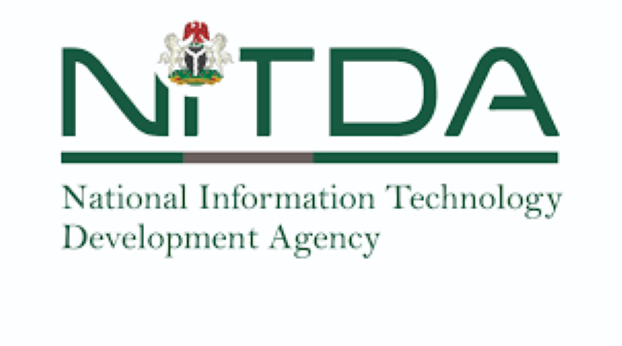News
FG Formulates National Policy on Artificial Intelligence, Commends Volunteer Expert Group

Owing to the immense potentials of Artificial Intelligence in revolutionizing technology and innovation, the Nigerian Government through National Information Technology Development Agency (NITDA), has completed the first draft of the National Policy on Artificial Intelligence which would soon be ready for transmission to the Federal Executive Council (FEC).

The draft copy which was co-created by a team from NITDA and 63 industry experts drawn from 351 volunteers’ applications received from Nigeria and abroad after the expression of interest was published in October 2022.
Kashifu Inuwa, CCIE, the NITDA’s Director General, during the final virtual meeting of the volunteer group commended the group for the “exceptional work in developing the Policy for Nigeria.
He said NITDA initiated the process of co-creating the Policy because the Agency strongly believes that there are things it can do as the government’s establishment which the ecosystem cannot do, and there are things the ecosystem can do which government cannot do, “but together we can achieve greater things.”
While stressing the potential of Artificial Intelligence to revolutionize the world, transform industries, and save lives by curing terminal diseases and reversing genetic disorders, Inuwa maintained that it also poses a significant risk such as bias, privacy violation and job displacement hence the imperative to have a policy in place to guide the development and deployment of AI in Nigeria.
He said an implementation strategic plan would be drafted to ensure that the policy achieve the purpose of which it is formulated, adding that the Agency would socialise with its various stakeholders and thereafter send it to the Ministry of Communications and Digital Economy for onward passage to FEC for approval.
“The NITDA Secretariat will now take over and continue working on the document’s design to get it ready for publication,” he stated.
He observed that what the volunteers had achieved with the policy is commendable and it is a result-oriented approach to engage them because most of the time that consultants are engaged to draft policies, it always end up as haphazard because they lack the technical know-how of the subject matter but the procurement processes always give them edge over the industry experts.
Describing the draft as robust, the NITDA boss outlined seven major areas cover by the policy to include Education and Research; Finance; Health; Media and Telecommunications; Labour and Productivity; General and Special Issues (such as building safe and responsible AI, ensuring Nigerian culture and values are digitally visible); and Security.
While congratulating the volunteers for “a job well done” by ensuring that the national assignment comes to fruition, he said the policy would position the nation to create and derive values from it and avoid the pitfalls and perils that could be associated with it.
Inuwa assured them that letter of commendation would be sent to them as no amount of money could assuage the commitment they put into drafting the policy.
Earlier in his welcome remarks, the head of NITDA Legal Unit, Barrister Emmanuel Edet noted that NITDA adopted the model of co-creation in developing the policy because it would put “us in the right direction and create a policy that is effective and functional in promoting the digital economy sector.”
He expressed the appreciation of the Agency to the volunteer experts and requested for their response when they are call upon again.
News
Stakeholders Demand Stronger Governance and Infrastructure to Drive Tech Adoption @ Lagos AI Summit

As AI adoption accelerates across Nigeria, leaders at the “AI in Action Now” conference 2026 have called for a balance between rapid innovation and strict regulatory governance. The event, held at the Lagos Oriental Hotel, highlighted both the doggedness of Nigerian builders and the risks of unregulated data usage.

Dotun Adeoye, Co-Founder of AI Nigeria, raised alarms over “Shadow AI”, a trend where employees upload sensitive official documents to public AI platforms. He praised the Nigerian Data Protection Commission (NDPC) for its recent aggressive stance, including multi-million-dollar fines against major banks and social media brands.
“Innovation without governance is dangerous. The regulator now has the job of educating players. We are working in partnership with them to ensure players don’t just get fined, but actually understand how to protect data locally rather than storing it abroad, ” Adeoye noted.
Addressing issues of lack of infrastructure to carry AI adoption, Conference Convener Debola Ibiyode admitted that while Nigeria lacks the traditional foundation for AI adoption, the tech community cannot afford to wait.

“The simple answer is we don’t have the infrastructure, but Nigeria has never really had infrastructure to drive anything, and we still thrive, ” Iboyode said, encouraging students and builders to look beyond current limitations. “Once we start to build based on what we have now, it will encourage those who need to provide the infrastructure to do their part. The world will not wait for us,” she insisted.
To bridge this gap, she highlighted the AI Foundry Africa, an incubator designed to mentor ideas into market-ready products.
Meanwhile, speaking to journalists on the sidelines, Biodun Ogunleye, the Lagos State Commissioner of Energy and Mineral Resources, echoed the sentiment that the government’s role is to facilitate the right environment through partnership. He emphasized that data generated from interactions with the government must have long-term value.
“We must ensure that in all facets from production to interaction with government, the tools required to ensure data has value are appreciated,” Ogunleye stated.
He concluded that through private-sector collaboration, the government can focus on its primary functions while leveraging AI to ensure the nation aspires for the future.
News
35 Million Nigerians Face Acute Hunger in 2026, UN Warns

About 35 million Nigerians face acute hunger risks in 2026, including three million children battling severe malnutrition, the United Nations has warned, attributing the crisis to collapsing global aid budgets and escalating violence in the northeast.

UN Resident and Humanitarian Coordinator Mohamed Malick Fall disclosed this on Thursday during the launch of the 2026 humanitarian plan in Abuja, noting that the traditional foreign-led aid model proves unsustainable amid Nigeria’s escalating needs.
He highlighted dire conditions in Borno, Adamawa and Yobe states, where over 4,000 people perished in the first eight months of 2025 from surging suicide bombings and attacks—equalling the entire previous year’s toll.
The UN now targets $516 million to deliver lifesaving aid to 2.5 million people this year, a sharp drop from 3.6 million in 2025 and half of prior levels, forcing prioritisation of only the most critical interventions.
Fall stressed, “These are not statistics. These numbers represent lives, futures and Nigerians,” as shortfalls last year compelled the World Food Programme to halt support for over 300,000 children after resources dried up in December.
Yet, Fall acknowledged Nigeria’s increasing national ownership, including local funding for lean-season food assistance and proactive flood early-warning systems, signalling a shift toward self-reliant crisis response.
News
NITDA Commits to Digital Inclusion for Persons with Disabilities

The National Information Technology Development Agency (NITDA) has reaffirmed its commitment to inclusive digital development following the completion of a two-day digital literacy training for persons with disabilities (PWDs) in Abuja.

The programme, organised under NITDA’s Digital Literacy for All (DL4ALL) initiative, the programme trained 50 participants in practical digital skills to enhance their participation in Nigeria’s expanding digital economy.
In his remarks, the Director-General, Kashifu Inuwa CCIE, stated that the programme reflects the agency’s determination to ensure accessibility remains a core component of national digital transformation efforts.
He explained that genuine digital advancement cannot be realised without the inclusion of persons with disabilities, adding that millions of Nigerians remain constrained by limited access to accessible and inclusive digital platforms.
“In many cases, the problem is not the absence of digital tools but the lack of accessibility. Platforms that do not support assistive technologies, non-captioned content and inaccessible websites effectively shut people out and limit opportunities,” he added.
Inuwa further explained that the initiative aligns with President Bola Ahmed Tinubu’s Renewed Hope Agenda, which prioritises inclusivity as a driver of national development. He stressed that persons with disabilities should be recognised as active contributors to economic growth rather than dependants.
“When equipped with the right skills and technologies, persons with disabilities become innovators, entrepreneurs and professionals who contribute meaningfully across sectors,” he added.
He acknowledged the role of Inclusive Friends Association (IFA) and SIMBED in delivering the training, describing the collaboration as a model of how government and civil society partnerships can advance inclusive development.
Highlighting NITDA’s broader digital literacy drive, the Director-General said the DL4ALL programme is a key component of the agency’s Strategic Roadmap and Action Plan, which targets 70 per cent digital literacy by 2027 and 95 per cent by 2030.
He explained that the initiative operates through three main tracks: an informal sector programme that has trained more than 480,000 Nigerians across 30 states and the Federal Capital Territory since September 2024; an education sector programme focused on embedding digital skills into learning institutions; and a workforce readiness programme designed to strengthen digital competence in both public and private sectors.
“This programme is not merely a pilot. It is proof that inclusive and intentional training works, and that persons with disabilities can excel when given equal opportunities,” Inuwa stated.
Also speaking, the Managing Director and Chief Executive Officer of SIMBED, Mr Daniel Onunkwo, described the training as a significant step towards closing the digital inclusion gap for persons with disabilities.
Onunkwo added that the initiative sends a strong message about equity and national progress, adding that SIMBED remains committed to expanding digital empowerment for persons with disabilities.
Similarly, the Executive Director of Inclusive Friends Association, Grace Jerry, represented by Tracy Agbamu, commended NITDA for demonstrating intentional leadership in promoting inclusion under the Renewed Hope Agenda.
She urged participants to continue applying the skills acquired and to serve as digital inclusion advocates within their communities.
The training programme further strengthens NITDA’s vision of building a digitally inclusive Nigeria where access to digital opportunities is determined not by physical ability but by empowerment and innovation.

 E-Business3 days ago
E-Business3 days agoFirm Detected a Scam Exploiting OpenAI’s Teamwork Features

 E-Financial3 days ago
E-Financial3 days agoMoMo PSB Expands Cross-Border Transfers Across Africa

 Broadcasting3 days ago
Broadcasting3 days agoDG NCC Tasks University Dons on Research Commercialization, IP Management to Build Global Competitive Ecosystems

 E-Financial3 days ago
E-Financial3 days agoBanks to Cut Fraud Response Times to Under 30 Minutes

 Telecom3 days ago
Telecom3 days agoFG Expands 3MTT Programme Across the Country

 News3 days ago
News3 days agoFirms Face Gaps Between AI Ambition and Execution

 Telecom3 days ago
Telecom3 days agoMTN Foundation Trains 2,000+ Young Nigerians in ICT for SME Growth

 General News3 days ago
General News3 days agoKuda Unlocks Instant Online Accounts for NGOs and Religious Bodies



























